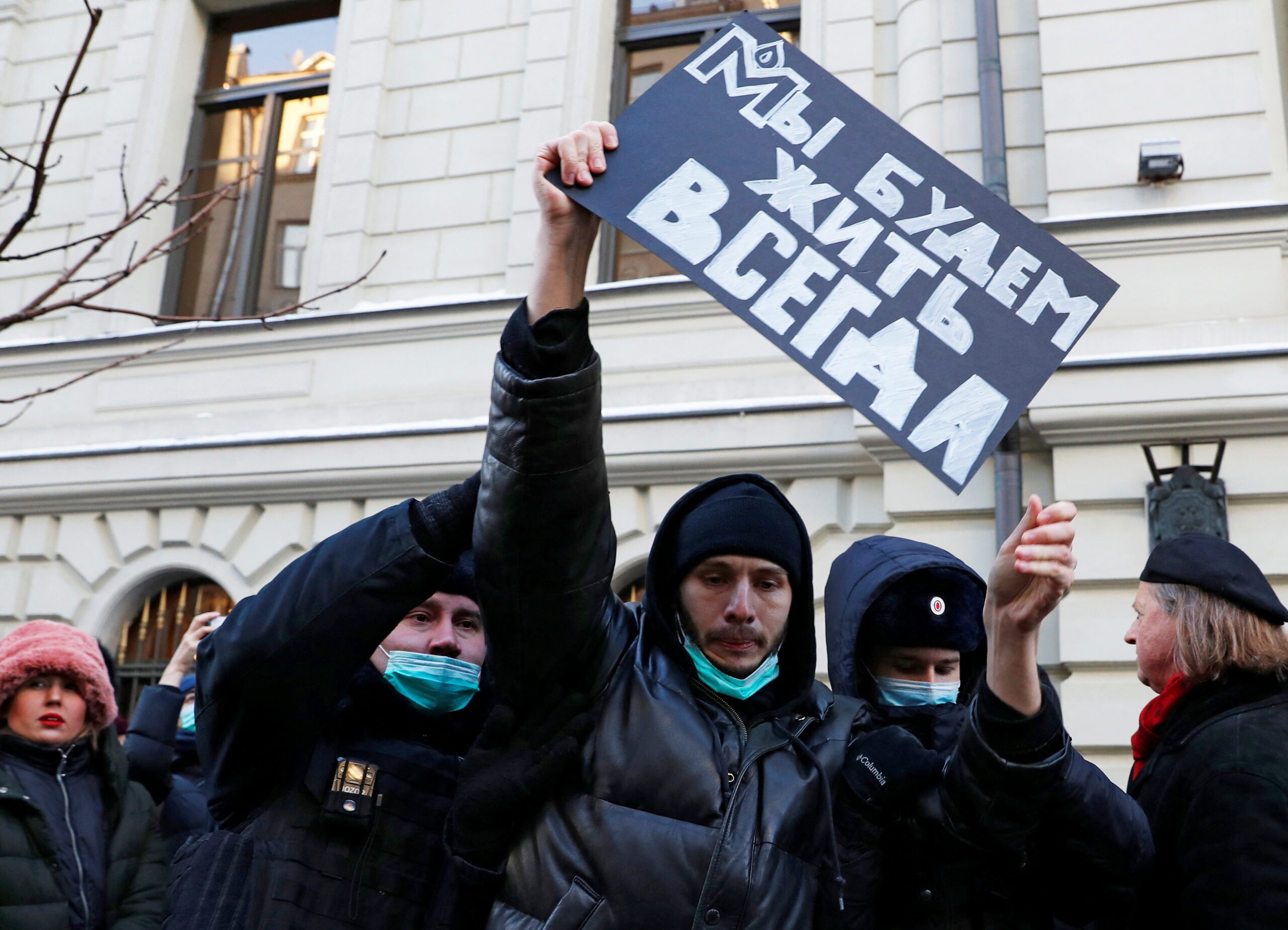SUMMARY
This is AI generated summarization, which may have errors. For context, always refer to the full article.

MOSCOW, Russia – Russia’s Supreme Court ordered the country’s best-known human rights group on Tuesday, December 28, to be liquidated for breaking a law requiring groups to register as foreign agents, capping a year of crackdowns on Kremlin critics unseen since the Soviet days.
The shuttering of the group Memorial closes a year in which the top Kremlin critic was jailed, his political movement banned and many of his allies forced to flee. Moscow says it is simply enforcing laws to thwart extremism and shield the country from foreign influence.
“This is a bad signal showing that our society and our country are moving in the wrong direction,” the TASS news agency quoted Memorial Board Chairman Jan Raczynski as saying.
Closing the group would increase the risk of “total repression” in Russia, one of Memorial’s lawyers, Maria Eismont, said during the final hearings on Tuesday.
Memorial has called the lawsuit politically motivated. The Interfax news agency quoted a lawyer for the group as saying it would appeal, both in Russia and at the European Court of Human Rights.
Established in the “glasnost” era of Soviet liberalization by prominent dissidents including the widow of Nobel Peace Prize-winner Andrei Sakharov, Memorial initially focused on documenting the crimes of the Stalinist era.
It served as Russia’s main rights group through two wars in Chechnya in the 1990s, and has more recently spoken out against repression of critics under President Vladimir Putin.
The authorities placed the group on an official list of “foreign agents” in 2015, a move that entailed numerous restrictions on its activities.
Last month, prosecutors accused the Moscow-based Memorial Human Rights Centre and Memorial International, its parent structure, of violating the foreign agent law.
Prosecutors said Memorial International breached the regulations by not marking all its publications, including social media posts, with the label. They accused the Moscow-based center of condoning terrorism and extremism.
Speaking at the final hearing on Tuesday, a state prosecutor said Memorial had organized large-scale media campaigns aimed at discrediting the Russian authorities, according to TASS.
The group has denied any serious violations and called the lawsuits political. It has said its members would continue their work even if it is dissolved.
Putin, a former spy in the Soviet KGB security service, said this month Memorial had defended organizations Russia considers extremist and terrorist, and that its list of victims of Soviet-era repression included Nazi collaborators.
The past year has also seen Putin’s leading critic Alexei Navalny jailed on charges he says were trumped up, after returning from Germany for treatment for poisoning that Western countries describe as a state-backed assassination attempt. Navalny’s political network was banned as extremist and many of his allies have been jailed or fled.
Russia defends the independence of its legal system and says its laws on extremism and foreign influence are similar to those in other countries. It denies any role in poisoning Navalny. – Rappler.com
Add a comment
How does this make you feel?
There are no comments yet. Add your comment to start the conversation.